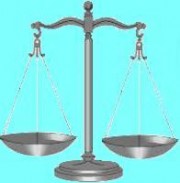| State | Rank |
| WASHINGTON | 1 |
| CONNECTICUT | 2 |
| PENNSYLVANIA | 3 |
| ARIZONA | 4 |
| CALIFORNIA | 5 |
| TEXAS | 6 |
| INDIANA | 7 |
| NEVADA | 7 |
| MICHIGAN | 9 |
| OREGON | 9 |
| RHODE ISLAND | 9 |
| WISCONSIN | 9 |
| ILLINOIS | 13 |
| NEBRASKA | 13 |
| NEW HAMPSHIRE | 13 |
| WEST VIRGINIA | 13 |
| FLORIDA | 17 |
| MARYLAND | 17 |
| NEW MEXICO | 17 |
| ARKANSAS | 20 |
| KANSAS | 20 |
| MINNESOTA | 20 |
| NEW YORK | 23 |
| NORTH DAKOTA | 23 |
| VERMONT | 23 |
| MISSOURI | 26 |
| NEW JERSEY | 26 |
| UTAH | 26 |
| MASSACHUSETTS | 29 |
| OKLAHOMA | 29 |
| ALASKA | 31 |
| OHIO | 31 |
| SOUTH CAROLINA | 31 |
| SOUTH DAKOTA | 31 |
| TENNESSEE | 31 |
| IOWA | 36 |
| NORTH CAROLINA | 36 |
| ALABAMA | 38 |
| COLORADO | 38 |
| IDAHO | 38 |
| KENTUCKY | 38 |
| MONTANA | 42 |
| GEORGIA | 43 |
| HAWAII | 43 |
| VIRGINIA | 45 |
| WYOMING | 45 |
| DELAWARE | 47 |
| D.C. | 47 |
| LOUISIANA | 47 |
| MAINE | 50 |
| MISSISSIPPI | 51 |
| FEDERALCIRCUITS | D+ |
A 2017 survey of judicial compensation in state courts ranked Maine’s Supreme Court 51st out of all states and the District of Columbia, based on compensation of $130,136. The superior courts, compensation $121,968, were ranked 49th.*
Maine is a relatively “clean” state in terms of corruption and general accountability of its public officials. However, the State court system ranks near the bottom at 50th according to a study of judicial accountability released in 2008. In its review, no other New England state ranked below 29th. Connecticut ranked second; Rhode Island tied for ninth, and New Hampshire ranked thirteenth. Vermont and Massachusetts came in at twenty-third and twenty-ninth respectively.
HALT (Help Abolish Legal Tyranny) is an Organization of Americans for Legal Reform, Inc., founded in 1978. It claims to be “the nation’s largest legal reform organization, a nonprofit, nonpartisan public interest group of more than 50,000 members.”
“Dedicated to providing simple, affordable, accountable justice for all, HALT’s Reform Projects challenge the legal establishment to improve access and reduce costs in our civil justice system at both the state and federal levels.”
In determining grades, HALT considered the following factors:
Transparency—In an era that embraces principles of sunshine, the nation’s system of judicial accountability maintains a closed-door structure that evades oversight. A transparent system would release information about an ethics complaint to the public at the conclusion of a preliminary investigation. (Maine’s “overall grade”: F)
Availability of Meaningful Sanctions—To successfully deter judges from abusing their positions of power and to provide citizens with access to a judge’s complete disciplinary history, all sanctions must be formal and public. A judicial conduct commission should have the authority to publicly censure, reprimand, fine, suspend and remove disreputable judges. (Maine’s “grade”: F)
Consumer Friendliness—Litigants are often reluctant to bring a judge’s misconduct to the attention of a local judicial discipline body because the rules of many jurisdictions “gag” individuals from disclosing information about an ethics complaint they have filed against a judge. To respect the rights of ordinary citizens, conduct commissions should allow complainants to speak freely. (Maine’s “grade”: C-)
Online Outreach—In today’s Internet-driven culture, most individuals look for information online. Every judicial conduct body should host a Web site that includes a clear explanation of the disciplinary process, a downloadable complaint form, past commission rulings, links to ethics standards and other critical resources. (Maine’s “grade”: F)
Public Participation—One way to ensure impartiality and to increase public confidence in the judicial oversight system is to include meaningful participation by ordinary citizens, yet judges and lawyers typically dominate judicial conduct commissions. The most successful forums give laypersons at least an equal voice in the decision-making process. (Maine’s “grade”: F)
Financial Disclosure—To determine whether a judge possesses an economic conflict of interest in a case, citizens should have the right to review annual financial disclosure reports. Filings should be comprehensive and public access to them must be convenient and affordable. (Maine’s “grade”: C)
Gift Restrictions—Corporations and special interests often use expense paid trips to lavish settings in a thinly-veiled attempt to lobby judges. Rigorous ethics rules would place monetary caps on the reimbursements and compensation that judges may accept from private groups, but unfortunately most state and federal rules continue to permit members ofthe judiciary to accept these gifts with few limitations. (Maine’s “grade”: B)
After assessing these categories, HALT assigned an overall grade to each state and the federal circuits.
(For details on the grading scale on all criteria, see HALT HALT. “2008 Judicial Accountability Report Card.” http://www.halt.org/jip/2008_jarc/report_card.php (accessed January 29, 2009) [not accessible in 2018]
Additional resources
*National Center for State Courts. “Survey of Judicial Salaries.” January 1, 2017. http://www.ncsc.org/~/media/Microsites/Files/Judicial%20Salaries/JST-2017-layout.ashx (accessed February 26, 2018)


